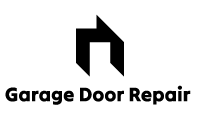Welcome to Laura’s Garage Door Repair blog! Today, we unwrap the Definitive Guide to Garage Door Types: your essential primer before making that all-important choice. Understand your options, material benefits, and styles—all tailor-made for your home’s security and curb appeal.
Understanding Different Garage Door Styles and Materials: A Comparative Approach
When it comes to garage door repair, understanding the variety of styles and materials is crucial as it will influence both the approach to repairs and the longevity of the door itself. The most common garage door styles include traditional raised-panel doors, contemporary doors, and carriage-house garage doors.
Traditional raised-panel doors are characterized by a series of symmetrical raised rectangular panels. They are versatile and can be found in a range of materials, including wood, steel, and aluminum. When repairing these doors, one must consider the panel design as it can affect how the door handles stress and repairs.
Contemporary garage doors are designed to complement modern home styles with their clean lines and streamlined appearance. These doors often incorporate materials like tempered glass, aluminum, and steel. Repairing contemporary doors requires a keen eye for detail to maintain their minimalistic look while ensuring functional integrity.
Carriage-house garage doors, resembling old-time carriage doors that swing open, offer a vintage aesthetic but operate like any standard overhead garage door. They are commonly made from wood or steel and may require specific technique and care when repairing, especially in maintaining the unique aesthetic without compromising functionality.
In terms of materials, wood garage doors offer natural beauty and can be easily customized, but they may require more maintenance and can be susceptible to water damage and rot. Steel doors are known for their durability and strength, making them easier to maintain, although they can be prone to dents which may require specialized repair techniques. Aluminum garage doors are lightweight and rust-resistant but can also be more easily dented, affecting the repair process.
Understanding the intricacies of different garage door styles and materials is essential for effective repair. It allows for proper identification of issues and the application of the correct repair methods, ensuring the door’s aesthetics and functionality are preserved. Repair specialists must have a comprehensive knowledge of these variables to provide high-quality service and extend the life of the garage door.
Frequent questions
What are the most common types of garage doors, and what should I consider when selecting one for my home in terms of ease of repair and maintenance?
The most common types of garage doors include sectional, roll-up, slide to the side, side-hinged, tilt-up canopy, and tilt-up retractable. When selecting a door for ease of repair and maintenance, consider a sectional garage door, as it’s widespread, has many available parts, and technicians are well-versed in their mechanisms. Additionally, opt for doors with standardized components and simple construction to facilitate easier repairs and lower maintenance needs. Avoid overly complicated or custom designs that may require specialized service or parts.
How do different garage door materials impact the overall longevity and repair needs of the door?
Different garage door materials significantly affect their durability and maintenance requirements. Steel doors are very durable and require minimal maintenance, but can be prone to rust in damp climates. Wood doors offer aesthetic appeal but demand regular refinishing and upkeep to prevent rot or warping. Aluminum doors are lightweight and resistant to corrosion, making them low-maintenance, but they are more susceptible to dents. Fiberglass doors are resistant to saltwater corrosion, thus ideal for coastal climates, but can fade from sunlight exposure. Lastly, vinyl doors are durable and require little maintenance but can crack in extremely cold weather. Understanding these characteristics is crucial for proper garage door repair and maintenance to ensure maximum longevity.
Can the type of garage door opener I choose affect the frequency of repairs, and what are the best options to ensure durability?
Yes, the type of garage door opener you choose can affect the frequency of repairs. Chain-driven openers are durable and cost-effective but can be noisier and may require more frequent maintenance. Belt-driven openers are quieter and smoother but can be more expensive. For durability and fewer repairs, opt for a higher-quality model from a reputable brand and consider features like soft start and stop mechanics to reduce wear and tear. Regular maintenance is also key to longevity regardless of the opener type.
In conclusion, understanding the various types of garage doors is crucial in making an informed decision that aligns with your home’s aesthetics, functionality, and security needs. Whether you opt for the timeless appeal of sectional doors, the space-saving design of roll-up doors, or the classic swing-out carriage-house style, each type offers unique benefits and potential drawbacks. Remember to consider factors such as material durability, insulation properties, maintenance requirements, and customization options. Choosing the right garage door not only enhances your home’s curb appeal but also contributes to its overall value. Lastly, ensure that your final selection is installed by a professional to guarantee optimal performance and safety. With this definitive guide as your resource, you are now well-equipped to choose the perfect garage door that meets all of your needs.
